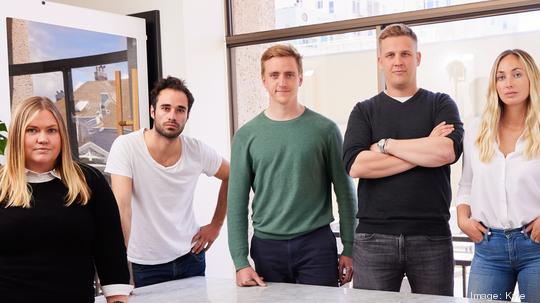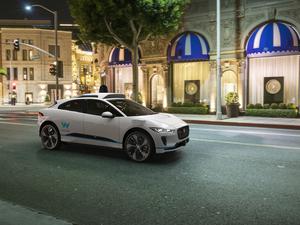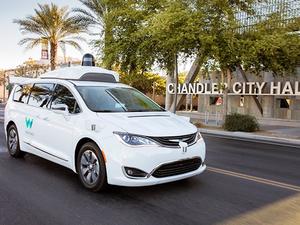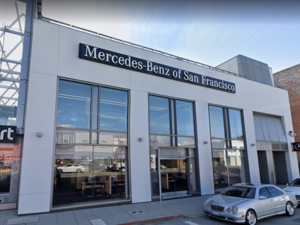
Cars are expensive conveniences that require maintenance, gas, insurance and a place to park. In San Francisco, a spot in a garage can cost nearly $500 a month, and last year a parking spot in the South Beach neighborhood went on sale for $100,000.
In dense urban areas, there are so many other ways to get around, so why waste resources on storing an occasional mode of transportation? A local startup wants to make answering that question a lot easier.
Kyte delivers rental cars from its own fleet of professionally managed vehicles and will pick them back up when customers are done for the day, week or month — however long you need it. The goal is to eliminate private car ownership in major cities with the eventually vision of transitioning to fully autonomous deliveries of self-driving cars.
Gas isn't included but they the company will refuel vehicles before and after trips. In San Francisco, cars are priced as low as $39 a day, according to its website. Pick-up and delivery costs $9.50 each way, and insurance for car damage and third-party claims ranges from $11 to $14. Subscribing for a week or longer unlocks discounts from 30-40% and requires a one-time service fee of $500 to cover the cost of things like maintenance.
The company just raised $30 million in a Series A round led by Park West Asset Management and Sterling Road, bringing its total funding to $39 million since it was founded in 2019. Other investors include DN Capital, Amplo, 1984 Ventures, FundersClub, Moving Capital, Rosecliff Ventures, Seraph Group, Unpopular Ventures, Urban Innovation Fund and the founders of FlixBus, a German transportation startup.
Co-founders Ludwig Schoenack, Nikolaus Volk and Francesco Wiedemann met each other while living in Munich and each have backgrounds in the automotive industry including stints at Uber and BMW. Schoenack previously worked at McKinsey where he consulted with automotive industry players.
Their experience living in urban environments around the world complete with congestion and parking issues inspired them to try to make car-based transportation a better experience.
"Instead of having cars everywhere, what if we make them disappear when we don’t need them?" Schoenack said.
- Company: Kyte
- Headquarters: San Francisco
- Co-founders: Ludwig Schoenack, Nikolaus Volk and Francesco Wiedemann
- Year founded: 2019
- Number of employees: Around 100
- Website: https://drivekyte.com
Kyte currently has about 100 employees and tens of thousands of customers across 10 cities in the U.S. San Francisco is currently the startup's largest market and it plans to double both headcount and the number of cities where it operates in the next 18 to 24 months.
Currently, human drivers (the company calls them "Kyte Surfers") are contracted to deliver the vehicles to customers and then use other modes of transportation, like scooters, to get around between drop-offs and pickups and are hired as contractors.
Eventually Kyte sees its fleet becoming fully autonomous, at which point it will be competing with other industry players like Tesla, Cruise and Waymo. For now, its competition comes from existing car rental companies and other alternatives like ZipCar, Uber, Lyft, taxis and public transportation.
"We don't believe in the peer-to-peer model," Schoenack said. "We believe fleets should be owned by professionals because that means they can be run efficiently, they can be run cost effectively, and it can be safe and sustainable. People shouldn't own cars."
Globally, the rental car market is expected to become a $141 billion industry in 2028 from $98 billion in 2020, according to a recent report from San Francisco-based Grand View Research.
Of course, a world filled with fully autonomous cars — what the industry calls Level 5 autonomy — is a long way off and faces lots of challenges ranging from consumer trust to regulatory barriers. But Kyte sees a transitional period a bit nearer in the future that will entail remote operators deploying vehicles to customers. Rather than trying to develop that technology in-house, it plans on working with industry partners like car manufacturers and autonomous technology makers, Ludwig said.
"For us it's important to build a robust commercial use case today and then feed technology into that system instead of spending a lot of money on R&D and hoping that it will come together eventually," Schoenack said.






